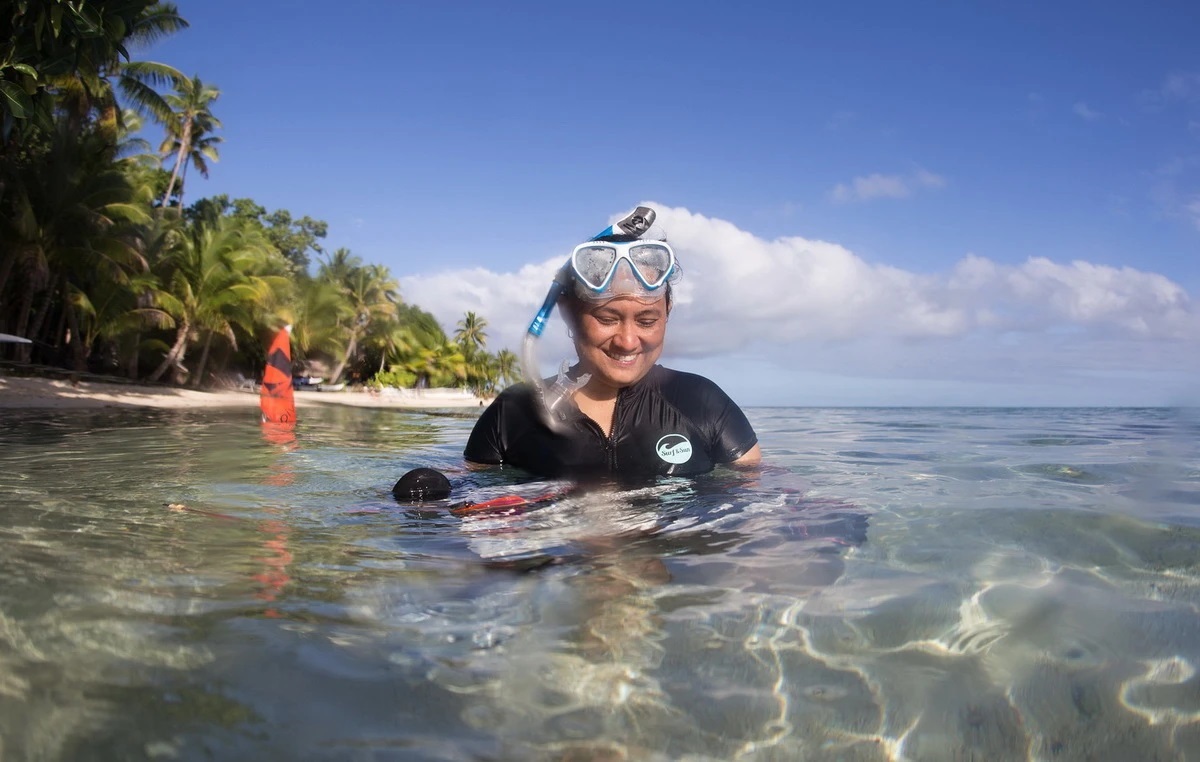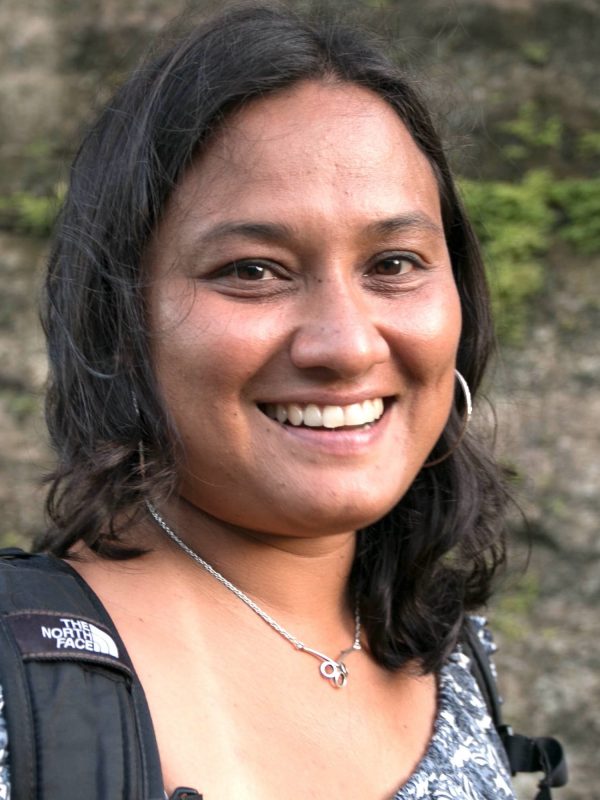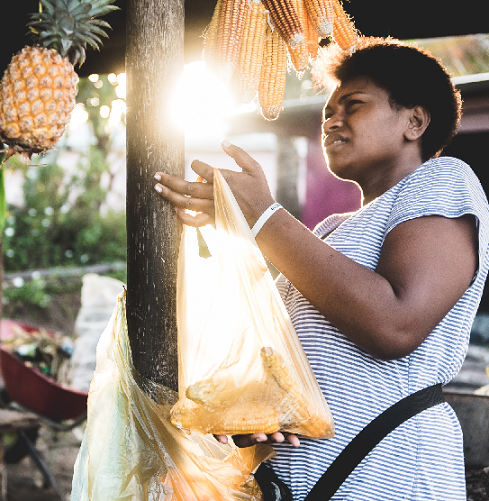Does your cultural or socioeconomic background influence your perspective on nature conservation? How so?
Yes, being from Fiji of mixed ethnicity and cultures helps me think through the solutions that work for us here in Fiji, in the wider Pacific. Being lucky and privileged enough to travel and work in other places, has helped me see the bigger global picture when it comes to nature conservation. It makes you appreciate differences in ideas, values, and viewpoints, and how to find common ground with people who are different from you.
Mention one skill you believe is crucial for succeeding in your line of work.
Being able to think critically and then write in a clear and concise way. This is what I think has helped me further my career and personal goals I have set out for myself. And none of this is easy. Most people assume I am a natural writer. But in reality I struggled with technical writing in my 20s. So I purposely (and with much grit and stubbornness) invested in developing those skills through my work and grabbed any opportunity I could. I knew I was weak in analysis and writing, so decided pursue a PhD to develop those skills, and I found mentors to give me "tough love" and critique my work. Writing academic papers was really hard for me - and still one of the most challenging styles for me. So I treat it like my Mount Everest. I practice and practice, give up weekends and sometimes holidays to write, and push past my securities to lead papers from beginning to end. It probably took a decade for me before writing has become more natural, and now brings me joy (and there is a lot less cursing!).
Highlight any advancement or achievement brought forth by your presence in the team.
I feel proud to be part of Talanoa Consulting's efforts to localise the consultancy space. We try to work with development partners and a wide range of organisations to have them value the knowledge, skills, relations and deep understanding of place, local consultants have.
How you envision the future of women in science and the potential impact on nature conservation?
I think there are more and more women drawn to science and conservation. When you have gender balance, I think you bring more viewpoints to the table, and this leads to more solutions, or more impactful solutions. We cannot solve the problems of nature conservation and the health of our planet, if we are excluding half the population. Women need to have an equal opportunity at the decision-making tables.





